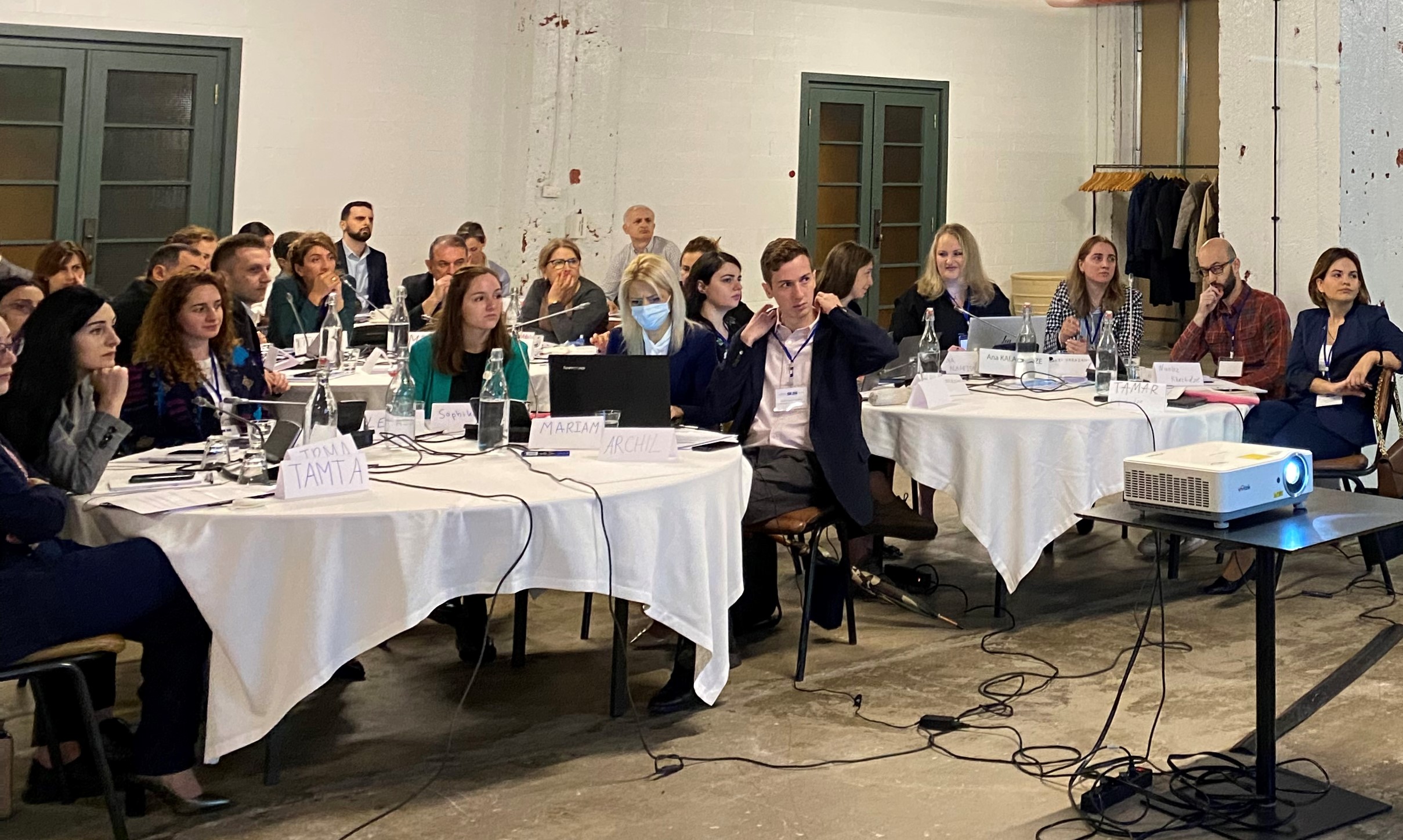The Council of Europe in cooperation with the Anti-corruption Council Secretariat organised a three-day training on “Preparation and Implementation of National Anti-corruption Strategy and Action Plan” to support the efforts of the national authorities in advancing their knowledge and enhancing their skills to produce and implement a National Anti-corruption Strategy and Action Plan.
Following the 2021 amendments to the Law on Conflict of Interest and Corruption in Public Institutions, the Anti-Corruption Council with the support of its Secretariat is the responsible entity in Georgia for the development of the anti-corruption policy; the coordination of its implementation; and monitoring of its results. It also falls under the remit of the Council to implement the recommendations of the international monitoring bodies for the improvement of the corruption framework in Georgia.
Immediately after it had been established and staffed, the Secretariat of the Anti-Corruption Council launched preparations for the drafting of a new Anti-corruption Strategy and Action Plan to replace that of 2019-2020 which had already expired. It was in this context that the Project engaged with the Anti-Corruption Council to work with its staff, and with the member of the Working Groups it had established for the drafting of the anti-corruption policy, to equip them with the expertise required for the undertaking what was a novel exercise for all of them.
The training was led by two Council of Europe international experts, both of whom with practical experience in drafting anticorruption strategies in their own countries, as well as local consultant to inform a better understanding of the local anti-corruption policy and institutional context for drafting, executing, monitoring, and evaluating the Anti-corruption Strategy and Action Plan.
Training participants were exposed to the techniques for collecting and analyzing the data received from competent institutions; to the methods for assessing the anti-corruption data to identify relevant needs; to the strategy drafting process; as well as to how to monitor progress and execution of the Strategy and Action Plan.
The third day of the event was fully devoted to a practical exercise on drafting, presenting, and monitoring of the Anti-Corruption Strategy and the Action Plan, but also to discussing in detail the role of each institutional stakeholder and coordination amongst them.
The training could be of the essence for the early production of an Anti-Corruption National Strategy, which will be paramount in the definition of policies to mainstream and prioritize measures and reforms to fight corruption in Georgia.
The activity was organised in the framework of the Project “Enhancing the Systems of Prevention and Combating Corruption, Money Laundering and Terrorist Financing in Georgia”, funded by the European Union and the Council of Europe and implemented by the Council of Europe in their Partnership for Good Governance II.




